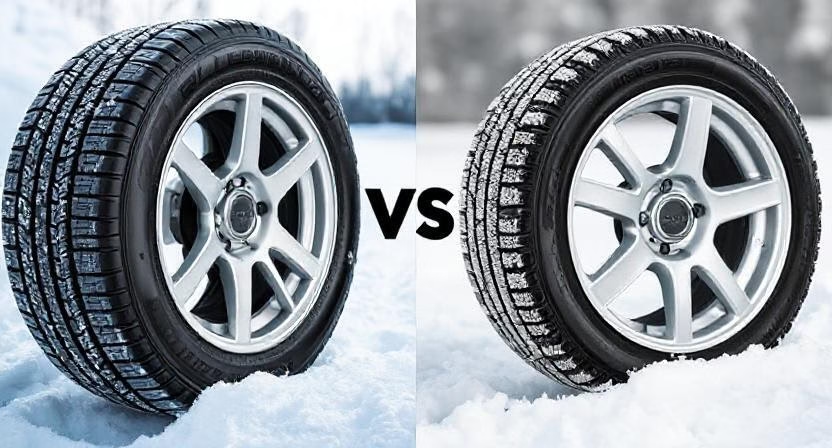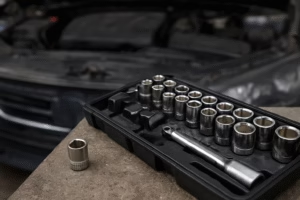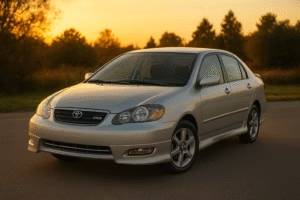At some point, every Canadian driver has sat in their driveway, stared at the sky, and muttered the same depressing winter mantra:
“Do I really need winter tires… or can my all-seasons fight for their lives again this year?”
Welcome to the most dramatic showdown since your uncle tried to race a lawnmower:
Winter Tires vs. All-Seasons — The Cage Match Literally Nobody Requested, Yet Here We Are.
Round 1: Entrance Music
Winter Tires enter like they own the place — soft rubber, aggressive tread, and the quiet confidence of a snowplow operator from Thunder Bay who hasn’t taken a day off since 1997. These guys were built for frozen chaos. Ice? Slush? That surprise snowstorm in April? Bring it.
All-Seasons stroll in wearing cargo shorts in January and claiming they “can handle anything.” They’ve got the energy of someone who’s only driven in perfect weather and thinks the Tim Hortons drive-thru is a proper test of vehicle capability.
Round 2: Traction in the Snow
Winter tires latch onto ice like a toddler gripping a bag of Skittles. They don’t care about black ice, packed snow, or that terrifying moment when you hit the brakes and hope for the best. They deliver.
All-seasons? They try.
But stopping on snow with all-seasons is basically running a marathon in flip-flops.
Possible? Yes.
Smart? Absolutely not.
Outcome? You in a ditch, explaining yourself to a confused squirrel.
Round 3: Dry Pavement Plot Twist
Winter tires are unstoppable in the cold…
…until the sun comes out.
Then suddenly they feel soft, wear out faster, and squeal at intersections like they just saw their crush at the mall.
All-seasons thrive on dry pavement. They’re that cousin who can’t win a race but also never embarrasses themselves. Reliable-ish. Predictable-ish. Fine.
Round 4: The Wallet Slam
Winter tires mean your car needs two outfits: winter boots and summer sneakers.
More money.
More storage.
Less garage space for literally anything else you own.
All-seasons let you run the “one pair of shoes for every season” lifestyle.
Cheaper upfront — but you might also slide through an icy intersection and yeet your dignity into a snowbank. Choose your battles.
Final Bell: So… Who Actually Wins?
If you’re in southern Ontario — where winter is mostly slush, gray skies, and passive-aggressive rain — all-seasons might survive the season.
But if you live anywhere north of that imaginary line where people shovel their ROOFS and snowbanks look your Corolla dead in the eye…
Winter tires win by knockout. No rematch needed.
Because winter tires aren’t just tires.
They’re peace of mind.
And peace of mind tastes a lot better than the snow you eat sliding into a ditch.
Pit Stop (for the Google Engineers Who Somehow Ended Up Here)
- Are winter tires worth it in Ontario?
Yes — especially if you enjoy stopping your car on purpose. - Do all-seasons work in Canadian winters?
They work… until they don’t.
The “don’t” usually involves a tow truck, a bill, and a bruised ego. - Best strategy?
Winter tires in winter, all-seasons in spring.
Like bird migration — but your tires don’t poop on anything.
Final Verdict
Winter tires by knockout.
All-seasons tried their best, but Canadian winter roads are a different kind of cage match — and winter tires are the only ones entering the ring with actual training.
Join Our Automotive Community!
Subscribe to our YouTube channel




